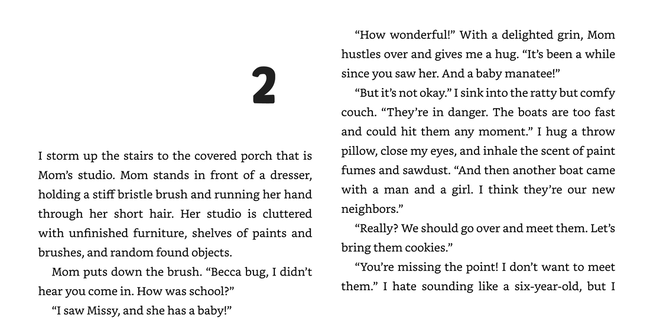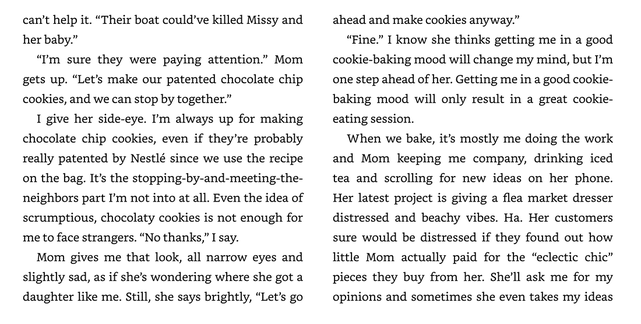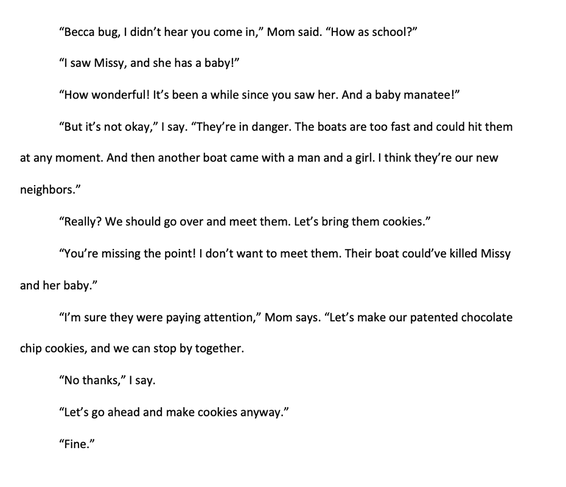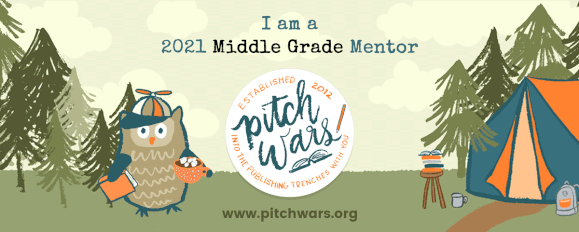|
Writing dialogue is hard, and it's an area I still work on. Here are some tips I've found helpful to make dialogue feel engaging and believable. 1. Eavesdrop Sit in a cafe or drive a carload of kids and listen to how they speak. You won't want to include the latest slang (because it will become outdated), but you'll get a sense of the different ways people talk (their cadence, voice, how they don't talk in complete sentences, are casual, etc). 2. Less is more: verisimilitude not exactitude Even if one of your characters like to talk a lot, writing dialogue isn't the same as transcribing words. Remove excess words and sounds such as "um" and "ah." This results in more crisp and concise dialogue, which will convey the essence of the conversation. 3. Give your characters distinctive voices Pay attention to the word choices and sentence structures of each character, to give them distinctive voices. For example, you can have one character never speak with contractions, which would give them a more formal voice. Or you might give a specific phrase to only one character. 4. Be sparing with dialect, stuttering, or other unusual speech patterns If your character has an accent, stutters, lisps, or otherwise speaks in a unique manner, don't overdo it when writing their dialogue, because it can be distracting or a stumbling block for the reader. You can add a slight touch of the unusual speech to give the reader an idea that this is how the character speaks, or describe it in the narrative, if it is something the POV character would notice. 5. Beware of floating dialogue A common issue I see in students in writing workshops is what I call floating dialogue: a big chunk of back and forth dialogue, without grounding action or description. Here is an excerpt of my recent book, Manatee's Best Friend. Start reading at the second paragraph that begins, "Mom puts down the brush." If I had written this scene as "floating dialogue," it would read like this: As you can see, the scene loses nuance and the characterization of both Mom and Becca. In first drafts, dialogue often comes out "floating," but in revisions, you can layer in the other elements of the story. I'm a Pitch Wars Mentor!I'm excited to announce I'm a middle grade mentor for Pitch Wars again this year! Pitch Wars is a mentoring program where published/agented authors, editors, or industry interns choose one writer each to spend three months revising their manuscript. It ends in February with an Agent Showcase, where agents can read a pitch/first page and can request to read more. Writers can apply to four mentors with a query, synopsis, and first chapter. I had a great time mentoring the talented Isi Hendrix last year, for her Afro-fantasy MG. She had a tremendous showcase experience, resulting in signing with two agents, one in the U.S. and one in the U.K.! Mentors will post our wishlists on or around September 12, so watch my Twitter feed for the announcement, if you're interested. I'll be posting my wishlist on my blog. This was a reprint of my email newsletters. To subscribe to them, hit this button:
0 Comments
Leave a Reply. |




